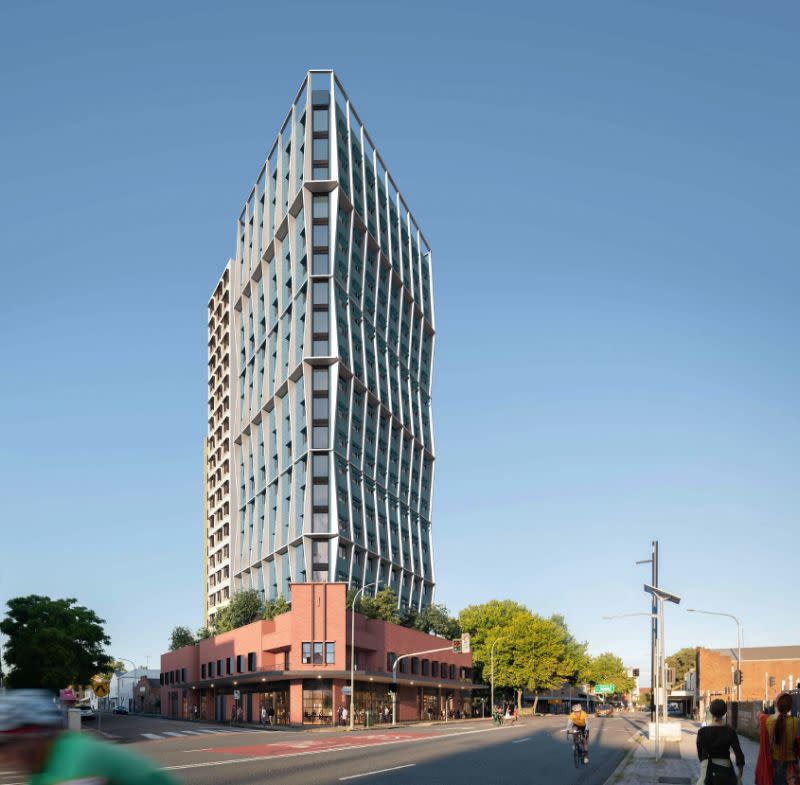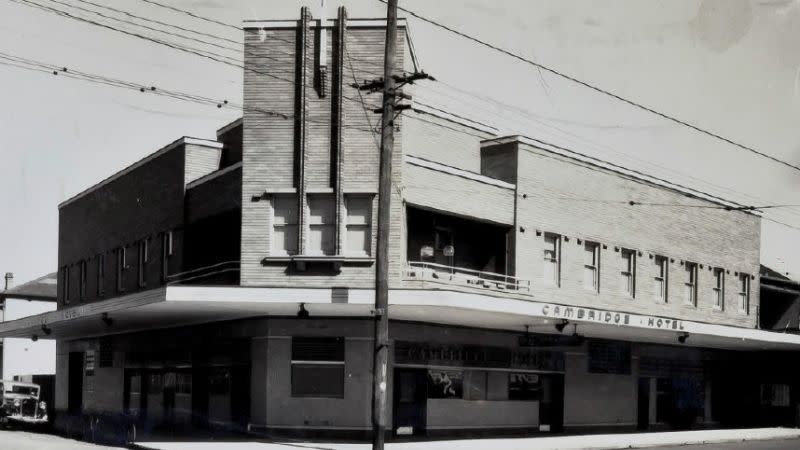Resources
Newsletter
Stay up to date and with the latest news, projects, deals and features.
Subscribe
French construction giant Bouygues has entered the Australian student accommodation sector, filing plans for a $105-million, 19-storey mixed-use tower in Newcastle’s western suburbs.
Bouygues Construction’s development arm, Linkcity Australia, wants purpose-built accommodation for up to 560 students with ground-floor retail, food and beverage all built above an 80-year-old, heritage-listed pub.
It’s the first foray into Australia’s purpose-built student accommodation (PBSA) for the international developer, which has been operating in the country for just four years.
It is likely UniLodge—majority owned by private equity firm Pamoja Capital and now Australia’s second-biggest PBSA provider—will be tapped to manage the new accommodation.
Linkcity Australia general manager Hubert Dumont said they had worked closely with UniLodge to better understand the accommodation mix necessary as well as on a design brief.
“We’re going through a campaign now to work with PBSA investors and then we will partner with them until the general stabilisation of the assets, and for that we will work with them to choose an operator,” Dumont said.
“And in this instance, it’s very likely to be UniLodge.”
Linkcity acquired the three lots that make up the 1971sq m property at 789 Hunter Street at Newcastle West about 18 months ago.
International environmental consultancy SLR Consulting said in documents before the Newcastle City Council that the heritage-listed Cambridge Hotel would be adaptively reused and form part of the podium beneath the tower.

“The design takes into account the importance of retaining key elements of the Cambridge Hotel building, restoring or reinterpreting original details, and achieving a harmonious balance in terms of proportions and materials,” SLR Consulting wrote.
The Cambridge has occupied the site in various forms since 1881 with the current iteration built in 1941. It enjoyed a reputation as a live-music venue in the 1990s and 2000s until sold.
The plans call for 560 students to be housed across a variety of room configurations, including single studios, twin rooms and four-bedroom clusters. The development will also include 20 purpose-built accessible rooms for disabled students.
About 1150sq m of communal indoor space will be used for a kitchen and dining area, laundry, lounge and recreation area, study rooms, music and movie rooms.
Parking for 18 vehicles will be made available, including space for six car share vehicles.
Global architecture and design firm Group GSA beat two other studios for the project contract in a design competition managed by Urbis late last year.

The developers are seeking a Clause 4.6 Exception to the area’s maximum building height. The tower will reach 67.03m to the lift overrun, which is 6m above the allowable height.
Bouygues Construction, which works throughout Europe and North Africa, first moved into Australia with the acquisition of the 100-year-old Sydney-based builder AW Edwards.
Until now, the bulk of Linkcity’s work in Australia has been infrastructure projects, such as tunnels and bridges.
“When we put a building-construction business in place, we then usually create a development arm and that’s what we are,” Dumont said.
“There’s a lack of beds in Newcastle but also across Australia and we think this is a good way to improve the life of the students and also somewhat improve affordability for the rest of the population.
“The students will free up some homes in the market when they move to dedicated accommodation.”
Dumont wants construction to begin in the second quarter of next year.
Demand for purpose-built student accommodation is increasing as the number of international students returning to Australian capital cities picks up, putting more pressure on the rental housing market.
Most recently two student accommodation towers—with a total of more than 1300 beds—have been added to inner-city Melbourne. Both will be operated by UniLodge.